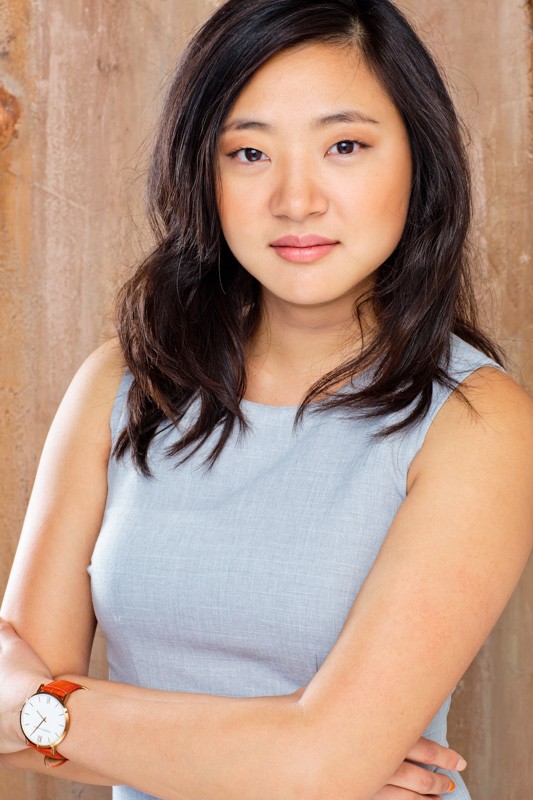
After college, Michelle La’s (’11) career was headed down the drain — but in a good way. She’d landed a role in wastewater management for a local government agency, drawing upon her biochemistry degree from Biola.
But then she sensed a different calling, and in an unlikely move, ended up co-starring with John Cho in the 2018 award-winning thriller Searching, a movie innovatively told through everyday technological devices.
La plays Margot, a 16-year-old girl who goes missing. Cho, who plays her father, desperately searches for clues to find his missing daughter by breaking into her laptop. The movie has a 93 percent rating on Rotten Tomatoes, has grossed more than $70 million worldwide and won the Audience Award at the 2018 Sundance Film Festival.
La was en route to medical school when she was a biochemistry major at Biola but reconsidered a medical career after interning at a local emergency room. Instead, she landed a government job analyzing wastewater. One week into her marriage, she surprised her husband when she told him what she really wanted to do: act.
Biola talked to La about pursuing acting, her role in Searching and the movie’s cultural impact.
How did you eventually decide to pursue acting?
I bought a Groupon for an acting class. … I took acting classes for a year — every single week — while working full time at the lab still. ... My passion, my knowledge, my interest just kept growing, and I realized, “This is what I want to do. I want to empathize with people.” Because I relate so strongly with the plight of wanting to be understood, I wanted to do that for somebody else. And that journey of and desire and motivation of wanting to understand somebody is what motivates me to this day. It’s so personal and special to me that I’m in this industry, doing this right now, because I really feel that God understands me. I really feel that he made me, and he knows my situation ... The way he works is so personal. I can’t ignore it, and I can’t not be grateful. I’m just so overwhelmed when I really stop and think about it.
You mentioned how this film could be about any family but this family was of Asian descent. How was that significant for you?
Yeah, and it’s because ethnicity wasn’t necessarily at the forefront; it was kind of refreshing. Because we, as the Asian family, didn’t have to justify why we were there. The filmmaker didn’t have to justify why they were placing Asians in this movie. To be a part of that movement and that conversation is beyond myself, and I get to be a part of it. I get to play a piece and also learn from people in the industry who’ve been at it for a long time and have been teaching me. ... I’m just so grateful.
How would you view your identity?
For me, as a Christian, I solidified my understanding of who I am at Biola. My identity is not my ethnicity. It’s a piece of my identity, but as Christians, our identity is in Christ. We are in God’s family, in God’s kingdom. We’re created by him, in his image. That’s who I am, and that’s who I try to bring to the table in every audition, every role.
What do you think this movie is trying to convey to the audience?
It just makes you reflective about how we use our social media and how we portray ourselves. Social media is curated — how we post. It’s our selections of how we portray ourselves, right? And then on the receiving end, people perceive you based on what you post and curate, so I think it’s just an important reminder that I like to share with people — that there’s so much to be said about social media. ... Technology is a tool that we use to communicate and engage the people we know, as an extension of our reality … And of course, even though it’s a useful tool, it can also be used negatively too, and you’ll see that in the movie.
– Based on interview with Monica Kochan
Watch Michelle's interview on Episode 41 of The Biola Hour, "From Biochemistry to the Big Screen."
 Biola University
Biola University


